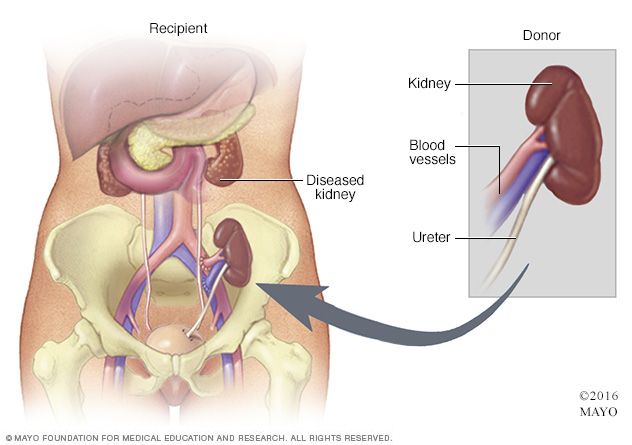It was found out that getting an organ transplant could increase the lifespan of an individual for four or more years. Chronic Kidney Disease (CKD) is getting serious day by day and if not taken into consideration, it could lead to an end-stage renal disease where the patient has no option but to go for a kidney transplant. It is not as easy as it seems like. The whole process is complex and if anything goes down south, then there is a minimal chance of recovery.
However, a successful kidney transplant will make sure that the new kidney is filtering the blood properly, throwing out the impurities. This will no longer need the individual to go through kidney dialysis, more of an Enteric Dialysis.
Truth to be told, the doctor will decide whether or not the patient will require the transplantation. It is all about eligibility, if the doctor thinks that the patient’s kidney is no longer in the condition to work properly, he/she will immediately arrange the kidney transplant operation.
But before that, the doctors will run the evaluation tests on the patient to check whether or not the patient’s body is compatible with the donor’s kidney. When the kidneys stop working, it gets replaced by the new ones (the donor’s kidneys). However, an individual can live with one kidney as well given that the other kidney is functioning properly.
Kidney transplantation is more like a surgical operation where the doctor cut opens the lower abdomen and attaches the donor kidney to the external iliac artery and veins. Kidneys are also connected to the uterus for the urine to pass to the bladder.
When it comes to surgical operation, even if it is a minute one, it possesses a greater risk towards the patient’s life. But many doctors believe that it is not the kidney transplant which is difficult but it is the phase after the transplant which is critical for the patient.
Most likely, every human body is liable to reject the donor organs at first. This is the reason why a kidney transplant patient goes under the influence of several medications just to suppress his/her immune system. This is done because there is a 99% possibility of the patient’s body rejecting the donor’s kidney.
Thus, the patient will be filled with anti-rejection medications. But, these medications are prone to make the patient’s body less immune and vulnerable to infections, so the doctors also prescribe antifungal, antibacterial and antiviral medications along with it.
It is advised that a patient after the kidney transplant undergo certain checkups with a dermatologist to look for any sign of skin cancer.
Is the patient eligible for a kidney transplant?
The patient undergoes a detailed medical examination and evaluation before receiving a kidney transplant.
- The medical examination could go for weeks, months before the doctors get the surety of whether or not the patient is eligible for a kidney transplant.
- The reason why doctors conduct the medical examination before the transplant is to find out the compatibility of the patient’s body with the donor’s kidney. During this course, they keep a tab on how the patient’s body reacts to the anti-rejection medications.
The survival rate of Kidney Transplant:
As per the survey conducted by Organ Procurement and Transplantation network, it was found out that the failure rate of kidney transplantation is 4% within one year when the donor’s kidney is of a deceased recipient. 21% is the failure rate recorded within five years of the kidney transplant.
When it comes to living kidney donor recipients, the failure rate is 3% within one year and 14% within five years of transplant.

